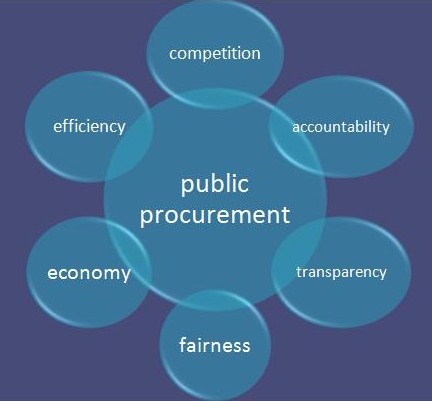ANSA-EAP anchors the capacity development for citizens’ groups who are engaged in advocating for and monitoring the outcome of procurement reforms. This is line with its objective of establishing a sub-network of procurement monitoring practitioners in the East Asia and Pacific region.
In the Open Doors 2009 Regional Forum on Procurement Monitoring in Hong Kong, ANSA-EAP spearheaded the setting up of groups that will pursue social accountability (SAc) in the area of public procurement. In advancing this agenda, however, it is important to recognize the nascent stage of citizen groups’ efforts to develop their knowledge and skills in procurement monitoring, particularly from a social accountability perspective. In many countries, procurement monitoring would not be immediately doable. A strong advocacy and support to facilitate the emergence of a pool of practitioners that could eventually evolve into a resource group of experts on procurement would be strategic.
ANSA-EAP’s approach to network formation has two levels: a country-level network grouping (ordinarily called conveners’ group) and a regional resource pool. They will provide the impetus to promote procurement monitoring practices among SAc partners. ANSA-EAP aims to anchor them and help develop their capacity to address social accountability issues in procurement based on their expressed needs and their particular country conditions. This is expected to create a critical mass of experienced and qualified procurement practitioners and experts in the region, which will accelerate constituency building for social accountability in the field of public procurement.
SITUATION
Public procurement is considered an important governance matter because it accounts for approximately one-fifth of national expenditures in the Asia Pacific region. It stirs much public concern because huge amounts of government resources are at stake. Not many are familiar with the regulations and processes governing public procurement, though. When abuses or corruption in procurement transactions occur, ordinary people could only shake their head and probably feel helpless. They would not instantly know what they could do to rectify the mistake and exact accountability for it, or how they could have helped prevent it.
This situation is generally true in many countries in the region despite various procurement reform efforts. There had been significant accomplishments, for instance, in establishing the regulatory frameworks. Three of the priority countries of ANSA-EAP, namely Mongolia, Indonesia, and the Philippines, all have successfully passed a procurement law, though at varying degrees of application, while Cambodia has yet to consolidate its many procurement decrees and sub-decrees.
In whichever form or phase, these regulations remain opaque and complex to the citizenry. Except for the Philippines, they likewise do not contemplate citizens’ direct involvement in such task of regulating the procurement processes and outcomes. Public procurement is still largely the domain of government bureaucrats and technocrats. Even in the Philippines where the law mandates citizens’ involvement in the process, there is still some reluctance from government to open it up to citizens’ monitoring. It is perhaps due to the citizens’ perceived lack of competence to handle procurement technicalities, or to fear of being scrutinized and reported for wrongdoings.
The growing public concern and interest in procurement, especially as a process that affects service delivery, presents opportunities and challenges to improve governance. It presents opportunities to enhance the effectiveness of procurement practices through additional controls and safeguards that third-party citizen monitoring could provide. At the same time, it challenges the government to simplify and demystify the procurement process, and offer more venues to facilitate citizens’ learning and engagement in such process.
ANSA-EAP formulates its agenda of building a community of procurement practitioners in the region in response to these opportunities and challenges. It shall harness (a) available monitoring tools that different citizens groups had already tested in their own countries, and (b) existing, active practitioners that will eventually lead the envisioned country and regional communities.
OBJECTIVES
The procurement sub-network agenda of ANSA-EAP aims to:
1. Establish citizen groups as a credible and organized voice in key in-country issues on public procurement.
2. Initiate an inter-country program to capacitate procurement practitioners in the citizen sector.
3. Set up country and inter-country efforts to assess the adaptation of transparency and social accountability measures in public procurement.
PROGRAMS
In-country
ANSA-EAP nurtures country programs based on local needs and interests. It taps a network of interested organizations to discuss, prepare, and implement the program. The program consists of reviewing the policy, strengthening the coalition and its influence, and planning for its sustainability inthe four priority countries of Cambodia, Indonesia, Mongolia, and the Philippines.
Inter-Country
ANSA-EAP bridges the differences in knowledge, skills and experiences in public procurement monitoring of various countries in the region. This, in the process, enhances each country’s programs and paves the way for the formation of a pool of country and regional expert practitioners on procurement monitoring. Four inter-country programs shall be undertaken, namely research fellowship, scorecard, regional forum, and network coordination.
The Research Fellowship addresses the need to build rigorous knowledge around regional experience in citizens’ monitoring of public procurement. The research must be a comparative study of the experience of at least two countries in the region, one of which should be a priority country of the ANSA-EAP.
Four research fellows of different nationalities will be selected through a competitive process. They will be provided with stipends and allowances to cover all of their research expenses, including travels and accommodations, registration and attendance in forums, books and other writing requirements.
The Scorecard on the Transparency and Social Accountability in Public Procurement aims to set international standards in country performance in public procurement. It shall be administered once a year.
The scorecard will be designed to capture (a) policy compliance, (b) the extent to which the public is informed about the procurement transactions of the government, and (c) whether the procurements have actually been assessed to result in concrete improvement in public services. A pool of experts, civil society, sector and community leaders will be gathered to prepare the scorecard. The results will be presented to and validated with the government before it is publicized.
A Regional Forum will be held to take stock of the different countries’ achievements in advancing reforms in public procurement. Also, it will feature new practices and innovations in citizens’ procurement monitoring, and provide venue to lobby for more urgently needed reforms in government procurements. Thirty participants shall be invited in the forum.
Procurement Network Coordination is ANSA-EAP’s way to track work progress and, at the same time, foster intense partner relations. A regional network fellow will be assigned to this job. His/her tasks shall consist of the following:
– Provide assistance for network building and developing a network coordination system to strengthen the ties and links across country groups so that social accountability is integrated in procurement monitoring work and strategies
– Monitor and capture the information about procurement focused activities and profile these initiatives on the country and inter-country levels,
– Assist the procurement specialist/consultants in formulating and implementing the region wide agenda on procurement as a social accountability practice
– Study, strategize and implement the capacity building platform of the procurement monitoring sub-network of ANSA EAP.
The Network Fellow could come from or be rotated to all the country procurement coordinators.

